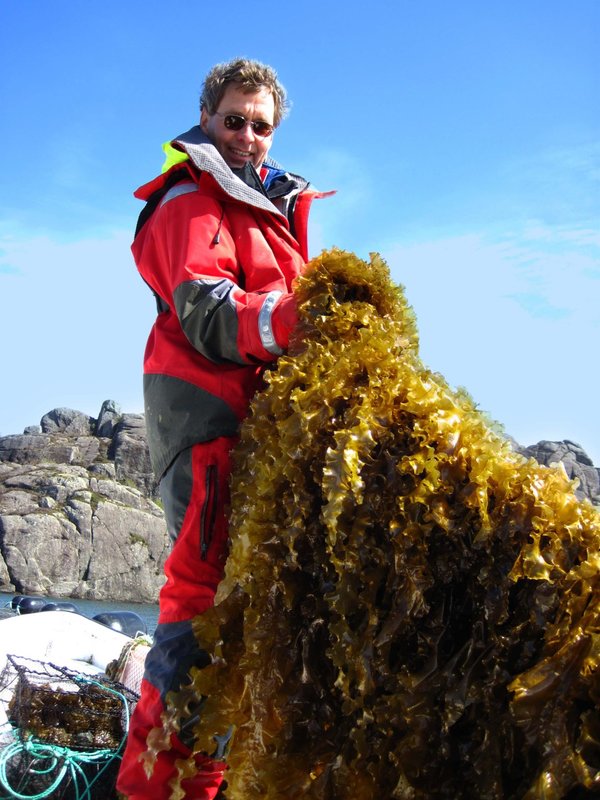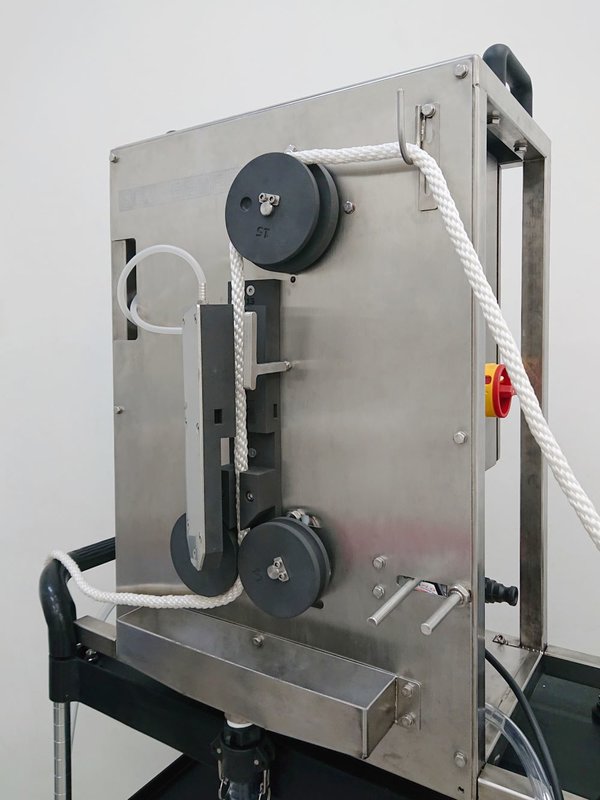Starting a seaweed farm? Our new member SEAWISER gives advise
2023-08-14
'We cannot scale up if we keep reinventing the wheel'
Job Schipper has been in the seaweed business since 2008. First as founder of the seed breeding company Hortimare and later as co-founder of North Sea Farmers. He now owns the company SEAWISER, which specialises in consultancy and research for seaweed propagation, hatching and seeding technologies and seaweed cultivation. His drive: to guide seaweed farms so that seaweed farmers don't need to meet and solve the same challenges over and over again and the sector can finally scale up.
What is currently the biggest challenge in the seaweed sector?
'That is scaling up. All the ambitions and ideals that everyone has can only be realised by scaling up. And for that we need square kilometers of seaweed; an industry. To achieve that, we need to use all our accumulated experience, exchange a lot of knowledge with each other and work together. There is also a lot to be done, both in technology development, and in developing installations at sea.'
Why did you start SEAWISER?
'So that we can finally get on with the seaweed sector. If we keep reinventing the wheel, we'll never get to scaling up the industry. By inventing the wheel I mean: trying the same concepts over and over again with little success like we tried with integrated systems (fish, blue mussels). That has all proven to be terribly difficult and doesn't always work. Keep it as simple as possible and focus on seaweed farming in the first stage.
Seaweed farmers starting out have lots of questions. For example, how do you set up such a large-scale seaweed farm? How do you make sure you have a year-round product, not just one season? How do you make sure your plants continue growing all year round? And where do you actually grow, what is the location? These are all things we can help with SEAWISER.
We also now have progressive insight. A few years ago, for instance, we said: 'To grow good seaweed, you have to check whether there are enough fertilisers in the water, read: nutrients. Then your seaweed will grow!' And that's true, but then everything will grow: also fouling. That's also the problem, then you won't have any crop left in summer. So the trick is to have a year-round crop, but not the cost of constantly cleaning installations. That is what we are trying to achieve together with seaweed farmers.’

What can people turn to SEAWISER for?
'For advice on running or setting up a seaweed business, research and improving seeding and cultivation technologies.
For this, I visit clients, or advise remotely. In our laboratory, which is under the same roof of Royal Netherlands Institute for Sea Research (NIOZ) on Texel, we have all kinds of marine facilities at our disposal: from culture cells to containers in which we carry out experiments. Together with the researchers Danny and Kasper, we perform research for partners and parties.
Establishing seaweed on rope is our specialism in this regard. We are currently developing an improved adhesive for the direct seeding technique, which I invented back then, so that we get a better predictable emergence and crop establishment. We are doing everything we can to improve that, through better adhesive, cultivation ropes, better induction methods for the seed and mechanisation of the process.
Recently we introduced the first direct seeding machine to the sector: the SEASEEDER. This machine enables the farmer to seed 1 km/hr in a two-step seeding approach. It is very much tie and labour saving and gives a perfect uniform crop development.
One of the core things when starting a seaweed farm is choosing your location: where are you actually going to grow? There is still far too little focus on that. Therefore, site selection is one of the things I advise on on very specifically.
Furthermore, it is also important to achieve a good crop development right from the start. If the start is good, you also achieve a good yield.'
What else are you doing to scale up the seaweed sector?
'We as SEAWISER are involved in the EU Seamark project, a very important project initiated by Ocean Rainforest at the Faroe Islands. It aims to develop four parallel product lines. Great strides are being made there at the moment.
For instance, we are working on extracting Saccharina, or how to preserve it in a different way. The goal of that is to finish TLR7 or TLR8 level so that we can actually offer something in the market. In production side, we are looking at upscaling: how can we perfect that cultivation and make it cheaper. I am also developing a new version of the seeding machine. That will be a faster version; we want to achieve that you can sow 3 km per hour instead of 1 km per hour.
To help our customers in the best possible way, we also collaborate with other consultants under the banner the Seaweed Connecters (SWD). This includes Bert Groenendaal, Theo Verleun and Javier Infante, a consultant in Chile who also has a lot of experience. That way we can complement and strengthen each other.'

Why is SEAWISER affiliated to North Sea Farmers?
'I believe it is important for the seaweed industry to work together. Especially in a start-up sector where everyone is searching, collaborations are essential for success. Not always competing, but above all sharing a lot of knowledge with each other.
Another added value of NSF is that you tie together components and companies from across the sector. I am convinced that it is important that there will be a capital-powered consortium, with the food or chemical industry linked to it on one side. After all, you don't get scale without a buyer signing off on something. On the other hand, you have to have parties with capital strength that will allow you to set up large-scale seaweed farms. Only then are we really going to learn how to run a large farm of hundreds of hectares at sea. That is where we need to go, and I also firmly believe that we will get there.'
How much potential does seaweed have?
'I think seaweed farming could solve a lot of problems we are currently facing on land. Increasing temperatures and desertification are limiting agricultural applications. Seaweed cultivation at sea is then a good alternative and even a necessity to have for the future raw material supply .
Moreover, the content has enormous potential: in terms of proteins, sugars and the special molecules that can be used for all kinds of applications. As well as the services that seaweed can provide for the ecosystem: think of nutritive absorption and the promotion of biodiversity where there is real value. So I think the seaweed industry will be indispensable to the world.'


